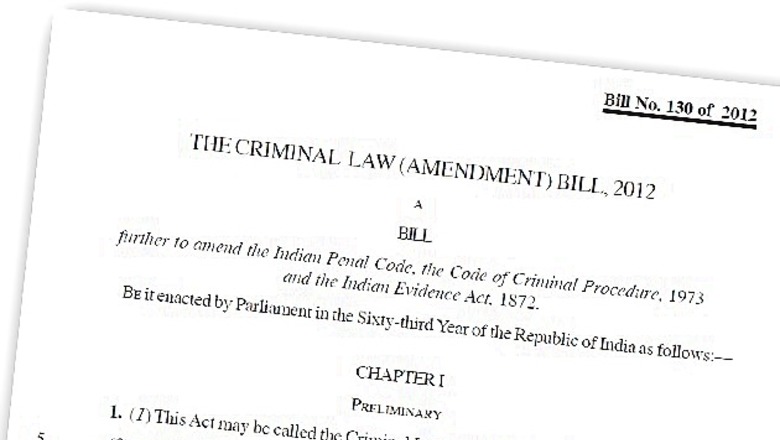
views
New Delhi: The brutal gangrape of a 23-year-old paramedic student on December 16, 2012 in the national capital witnessed huge uproar and protests with thousands of people out on the streets demanding justice for the victim and severe punishment for the culprits. Even though the country witnesses several cases of sexual assault everyday, the sheer brutality of the December 16 incident shook the nation and forced the government to set up a three-member committee to suggest changes in the anti-rape laws.
The young paramedic student was raped and murderously beaten up by six men in a moving private bus and thrown out of it after 30 minutes of torture along with her male friend. The victim and her friend were returning to Dwarka after watching a movie at Select Citywalk mall in Saket, Delhi.
The victim succumbed to massive internal injuries after battling for life for over 12 days. She died on December 29 in Singapore's Mount Elizabeth hospital.
While protesters across the nation demanded death penalty for rapist, but a panel headed by late Justice JS Verma rejected the idea and instead said India needed to implement existing laws to prevent rape.
On March 21, 2013, India approved a tougher new anti-rape law to punish sex crimes, including death for repeat rape offenders. On April 2, 2013, President Pranab Mukherjee accorded his assent to the Bill which is now called the Criminal Law (Amendment) Act, 2013.
The Criminal (Amendment) Bill 2013 covered even the smallest sexual offence but the procedure to give justice still remains a problematic area. Amendments were made to the Indian Penal Code, Code of Criminal Procedure 1973 and Indian Evidence Act 1872 to ensure speedier justice.
Delhi High Court lawyer Hitendra Kumar Nahata said, "The Bill is perfectly drafted, it is very strong with respect to Protection of Children from Sexual Offences Act but the landing area is grey."
"The delay in justice to the victim was due to the procedure which includes submission of chargesheet, police official who still have an orthodox mindset and are not adapted to the new change in the law, lack of modern equipment, long trials," said Nahata.
"The major amendment in the Bill was the extension of Section 354 of IPC which covers stalking, voyeurism and even lewd expressions," he said.
Even Section 376 of IPC was extended, made more powerful and punishment for sexual assault was also made more stringent.
With the amendment, even the jail term has been increased and is now a non-bailable offence. But the journey to punish the accused is a long one. "There should be a change in the procedure. CrPC needs to be amended, investigation needs to be modified, more forensic scientific laboratories need to be set up, camera trial proceedings should start" he added.
The Act is very strong but whether it will be able to stand the test of time, one needs to wait for it, he said. While the Act focuses on women and children but surprisingly has no place for males and transgender victims.
As the rape of another young woman by an Uber taxi service driver on December 5, 2014 shows, laws are not the only solution to ensure safety of women.
















Comments
0 comment